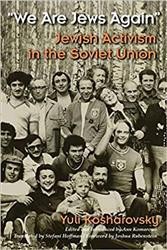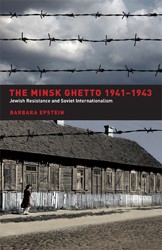One of the great triumphs of contemporary Jewish history was the successful movement to free Soviet Jews. Subject to discrimination, to frequent physical violence, and to the progressive loss of their religious and cultural heritage, these Jews were barred from leaving Russia. A generation later, the achievement of their freedom has receded into history and become a dim memory. It is therefore important to preserve as full a record as possible of the movement, which stretched from the mid-1960s to the collapse of the USSR in 1991. According to Rabbi Weiss, the decades of struggle were initially inspired by the heroics and affirmation of the 1967 Arab-Israeli War and the harsh sentences handed down by a Soviet court to desperate Jews,who, after being denied visas to leave for Israel, hijacked a Russian airliner. Another factor was the idealism generated by the American Civil Rights Movement.
Rabbi Weiss, spiritual leader of the Hebrew Institute of Riverdale, was a prominent, tireless activist for Soviet Jews, and a somewhat controversial figure. He describes himself as having been an anti-establishment individual, a “spiritual activist” who combined religious teachings with his activism. He emphasizes that the Student Struggle for Soviet Jewry (SSSJ),the organization he led, was devoted to nonviolence. In an interesting section, Weiss contrasts his philosophy with that of Rabbi Meir Kahane and the Jewish Defense League. SSSJ tactics included hunger strikes, sit-ins, and prayer services in front of the Russian Embassy in Washington, DC, the Soviet Mission to the United Nations in New York, the headquarters of the Russian airline Aeroflot, and the Russian diplomatic residence in Riverdale. Freedom Seders featured an extra matzah for Russian brethren. Creative street theater and informational discussions brought about growing public awareness. The SSSJ and similar groups were the spark: they brought passion and energy to the movement; some of Rabbi Weiss’s own students at Stern College and Yeshiva University were avid participants.
Looking back, the author appears to now understand the necessity of activists and the Jewish establishment working together, as they eventually did. In regard to his former establishment opponents, Rabbi Weiss pulls no punches. He names figures such as Morris Abram, who held high office within the Jewish community and the government, Armand Hammer, and other moguls who sought lucrative deals with the USSR. Rabbi Weiss claims that the so-called community leaders preferred the traditional Jewish policy of appeasing powerful enemies, a tradition which Rabbi Weiss utterly rejects. He blasts former Secretary of State Henry Kissinger, a refugee from Nazi Germany, for his indifference, and holds Israel accountable for accommodationist policies and attempts to curry favor with Russia after the Six-Day War diplomatic break in relations.
This feisty account also gives credit where credit is due. Rabbi Weiss asserts that Soviet Jews set the movement’s agenda, describing the suffering of many “refuseniks” who became familiar names and faces to Western supporters. American Jews were “junior partners” in the endeavor. A list of American volunteers is supplied at the back of the book; most are unknown except to their comrades. Rabbi Weiss also expresses deep appreciation to Christian clergy for their assistance. The retelling of Avital and Natan Sharansky’s story is moving. The legislative and political history of the Jackson-Vanik Amendment, which tied economic benefits and cultural exchanges to Jewish emigration, deserves the coverage it receives.
Although repetitive in spots, Open Up the Iron Door is highly readable except for the final section, which lags. Like the author’s life, his writing is never boring. One may conclude that the author is a true believer in causes which he deems vital to Jewish survival. Few committed Jews would disagree with his major themes: that the Soviet Jewry Movement resulted in uniting the Jewish world, offering opportunities to Jews, especially in the Diaspora, to strengthen their Jewish identity.
Participation in the movement brought Rabbi Weiss into close contact with Jews from Conservative, Reform, and Reconstructionist denominations; he appears to have become impressed by their sincerity and respectful of their perspectives. The author’s current project is the promotion of a new type of Orthodoxy, which he labels “Open” Orthodoxy. He desires to make this project an inclusive one. He has already founded two yeshivot, one that embodies the principles that define his life, another that prepares women for ordination. A collection of small photos dating from the 1960s to the 1990s sets the mood for the text. It would have been useful to include a timeline of movement highlights, and a list of agencies referred to by their abbreviations. Index.
Related Content:





